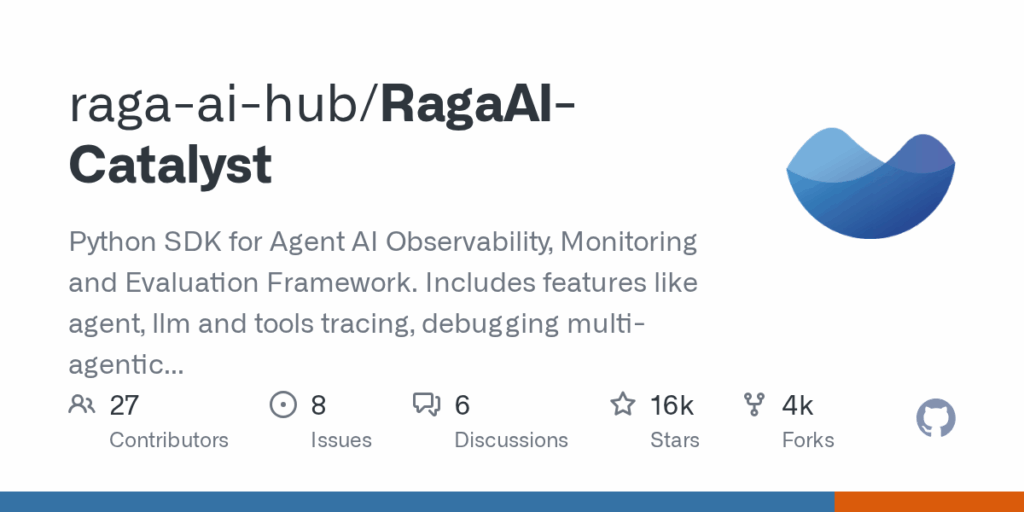RagaAI Catalyst
Basic Information
RagaAI Catalyst is a developer-focused platform and Python SDK for managing, monitoring, evaluating and safeguarding large language model projects and agentic systems. It provides programmatic interfaces to create and organize projects, ingest and manage datasets, define evaluation experiments and metrics, record and analyze execution traces, and manage prompts and guardrails. The README documents how to install the package with pip and how to configure authentication keys for the RagaAI Catalyst service. Typical usage shown in the README covers creating projects, uploading or mapping CSV data, running metric evaluations, recording LLM and agent traces, and integrating generated or compiled prompts into LLM calls. The project is intended to centralize observability and operational tooling for RAG and other LLM applications so teams can track behavior, evaluate performance, reproduce runs, and apply safety checks across models and deployments.








